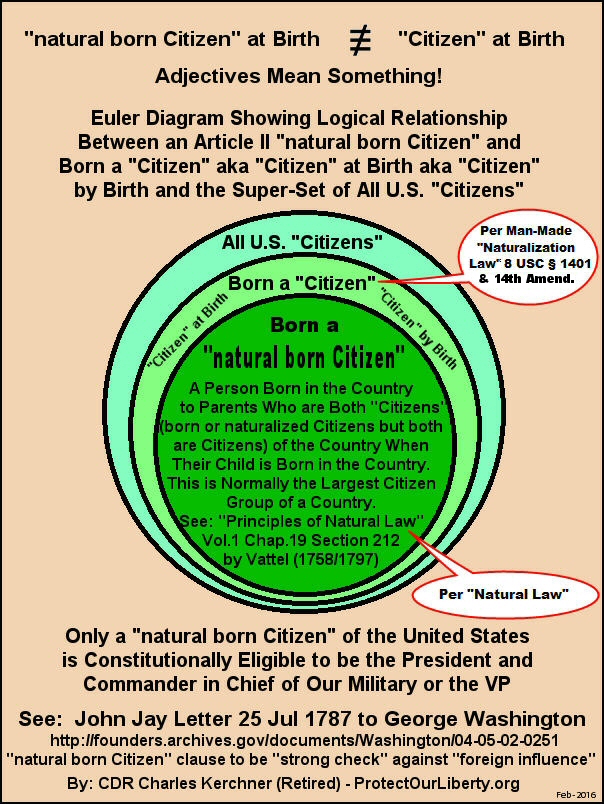As a matter of undisputed historical fact – and as noted by Publius Alexander Hamilton in Federalist 68 – the Founders viewed the potential for the insinuation of “foreign influence” into the highest office of the new Republic with great suspicion and trepidation. Federalist 68 confirms the Founders’ determination to prevent this danger, stating that it arose “chiefly from the desire in foreign powers to gain an improper ascendant in our councils. How could they better gratify this, than by raising a creature of their own to the chief magistracy of the union?” (Emphasis added). The objective was to shield and vigorously protect the “chief magistracy” – the Office of the President – from that potential. Accordingly, the Founders sought to establish the highest possible available barrier to that danger by mandating, as John Jay had “hinted” to George Washington, that the presidency be restricted to not merely a “citizen” – as Alexander Hamilton himself had once proposed, which the Founders ultimately rejected as being too weak – but instead to a “natural born Citizen.” The highest available and known nbC definitional barrier in existence in 1787 was the de Vattel § 212 definition: a person born in the country to two parents who were already its citizens.

If the debate *in the 1780s* (not the 1860s) was about land versus lineage (jus soli vs. jus sanguinis vs. both together), I would posit that in the 1790s travel in and out of the United States was practically impossible for most citizens.
Only the most wealthy (or ambassadors of the United States) could afford passage on sailing ships to England or France for a six-week voyage under hardship conditions. If someone did manage to obtain such passage, they would stay in Europe for years before returning to the United States.
Lineage to the land was well-known. I would think that to be true of most people in the 1790s; the townspeople of any town in the United States would have known who begat whom through the generations (they used to document that in family Bibles), and so "land" was a proxy for citizenship by parentage, too.
Given that people didn't travel far distances back then, "land" and "parentage" were synonymous in practice.
-PJ

